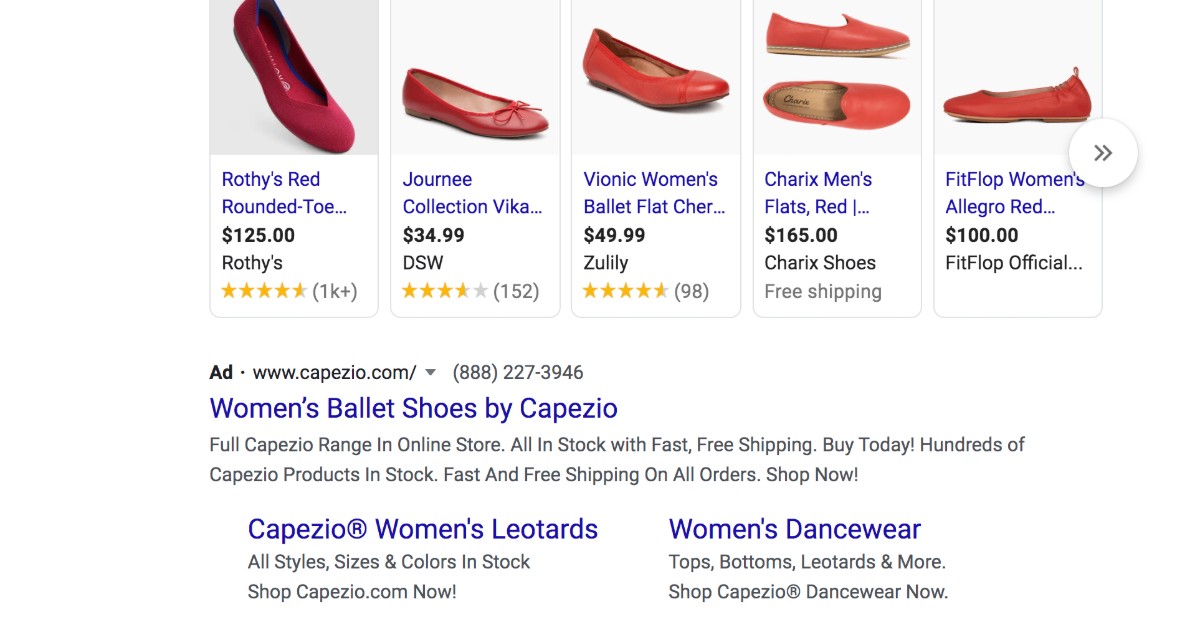Excluding Digital Marketers, the acronym SERP (search engine results page) is not widely known – but the product is used multiple times daily by the general public. Americans daily per capita search usage is 4 to 5 Google queries (based upon 1.4 billion US searches and a population of 300+ million). Approximately 90% of all purchases begin with a search query. While it is well understood that being on the first page of a SERP drives traffic, it may not be as apparent that it has branding value as well. Just how crucial is ranking highly on SERP? Let’s use one keyword phrase – say “personal injury attorney” – to demonstrate its importance.

Market Size and Market Share
Personal Injury Attorney generates an average of 40,500 monthly searches.
| Organic Position # 1 | Organic Position # 10 | Organic Position # 55 | |
| SERP Estimate | Page 1 | Page 1, below fold | Pages 4 – 6? |
| Percentage of Clicks | 20 – 33% | 2 – 3 % | 1 in 10,000 or less |
| Number of Clicks | 8,100 – 13,365 | 540 – 810 | 0 – 4 |
| Number of Impressions | 40,500 | 27,000 – 40,500 | 0 – 800 |
Given published CTR (click through rates) by organic position, we estimate: ranking first organically for a term with this search volume would attract thousands of monthly visitors while ranking tenth would attract hundreds. Both rank on the first page, although the lower ranking might be “below the fold” – that is surfers would have to scroll down, impressions could possibly be lowered by a third. With approximately 8 – 12 organic listings per page, a 55th ranking position would be somewhere between pages 4 and 6. Impressions, at best, would be low double digits to high triple digits and clicks would be few to none.
We can think of keyword volume as a proxy for market size and organic ranking as an indicator of the percent of consumers who will click through to you or market share.
Additional general stats to note about SERP:
- The first page of organic results captures 70% of all search traffic clicks
- Only 15% of traffic clicks on a paid ad
- Fewer than one in twelve searches go past the first page
- The entire second page of a SERP results get 6% of all clicks
- About 1 in 4 of all web visits stems from an organic search result
A company’s presence on a first page SERP generates traffic and creates impressions, positively impacting revenue and brand awareness. Possibly as important as creating awareness, a first page ranking is a tacit endorsement from Google that your content has done something (or many things) right to be so ranked.
Google has captured an 80%+ market share because their SERP is useful. It is almost universal in usage because customers trust that Google’s results have a high likelihood of answering their question. Relevance or being useful has become Google’s promise, its brand. A brand is a promise of what you do and the perception held by the public – prospects, customers, investors, suppliers, employees, et al – of how well you do it, and if you do it in a way that adds value. We’ll come back to this point.
The Destination
When I conduct a search for, “red ballet shoes,” I’m informed that there are over 87 million results (compiled in a fractional second)! I’m presented with relevant product images, paid ads, e-commerce purchase options, “people also ask” related questions, a map of nearby stores, links to organic results deemed the most relevant, and a listing of related searches.

As should be expected, Google is guarded about its “secret sauce.” Allegedly, there are over two hundred algorithms influencing ranking. The inputs are constantly being fine-tuned. An authoritative study on organic search concluded that 17 factors included among the most important metrics were:
- site visits
- time on site
- pages per session
- backlinks
- referring IP’s quality
- website security
- both technical and topical keyword placement
In recent years, the acronym EAT, which stands for “expertise, authority and trustworthiness” summarizes key attributes valued by Google. So consumer approval (implied by metrics such as page views, Google My Business ratings, time on site, likes), peer endorsement (inferred from backlinks), and technical quality (measured by load speed, mobile readiness, meta-tags, etc) all contribute to how search bots measure “content-worthiness” and establish rankings.
Being on the first page of SERP is rarely random luck. Rather, it implies thoughtfulness in anticipating consumer questions and clarity in fully responding to them. As this thought leadership consistently becomes a pattern across other content published on your site, it begins to differentiate your company’s brand. Your content, and by extension your company knowledge, is viewed as useful and authoritative. Just like excellence is its own reward, good content has its own intrinsic value – it implies that your publication is systemically informed by research, experience, and good practices.
The Journey
So, some version of this cycle manifests itself:
Subject matter expertise, a disciplined process, and good communication skills produces useful content which creates positive impressions. Repeatedly producing useful content increases trust and burnishes your brand. Increased engagement and good experiences boost organic rank which increases readership that goes around and around in a positive feedback loop.
With every new high SERP ranking, your brand is creating awareness and being considered as a solution by prospects looking to solve problems or inform themselves. Being on the first page not only gives you the possibility of being clicked, but also positively burnishes your brand with your target audience. With the increased attention from high SERP rankings, your brand draws further scrutiny. Being highly visible is great when your messaging, tone, and service are consistently good. Being present and being vetted inspires confidence. Even if you get a negative review, it may be better to be quick to failure, correct the error sooner rather than later, and perform active reputation management. Sometimes the customer is unreasonable and you can establish what is fair with a well-balanced reply. On a couple of occasions, I’ve seen unfair reviews prompt otherwise silent customers rally to the defense of a cherished business by sharing their positive experiences on Google My Business or social media.
Everybody loves a winner; the likelihood of others wanting to link to your content increases the higher your content ranks. Regularly updating your content helps you attract new visitors and give previous visitors a reason to return. The quality of your content can speak volumes about your brand and increase the trust a searcher has about your brand. Studies document that brand recall, click through rate and purchase consideration are positively impacted by 15% to 30% SERP rank. As you are establishing your brand, you are creating a barrier to entry since your organic rank will naturally be higher for your own branded term compared to generic discovery terms.
Hope is Not A Marketing Strategy
Organic CTR is almost five times higher than PPC (pay-per-click) because people trust the source more. Engagement indicators such as average pages per session and average session duration are 40% to 100% higher for organic traffic compared to paid traffic. First page organic listing CTR is almost twelve times higher than all the subsequent SERPs combined. This is why professional marketers and lay people alike compete so fiercely to earn a first page ranking – generating some 1,400 new blog posts per minute. To avoid being bypassed on the digital highway, you should spend some time thinking about how prospects (who don’t know you) search for solutions to their problems and how you should present your services so that they might consider your services. I remember in my college years being advised that there is as much value in writing a good resume as there is in the final document produced. When you’ve concluded the exercise, you have a better sense of what you want, who you are targeting and how you are going to communicate why you should be hired. It is the same with content; that’s why a first page SERP resonates with prospects. They are ready to consider you because you have demonstrated that you have high quality content that is clear and helpful. That clarity is the first of several promises to increase your brand. As an added bonus, content is the gift that keeps giving.
Stay Connected